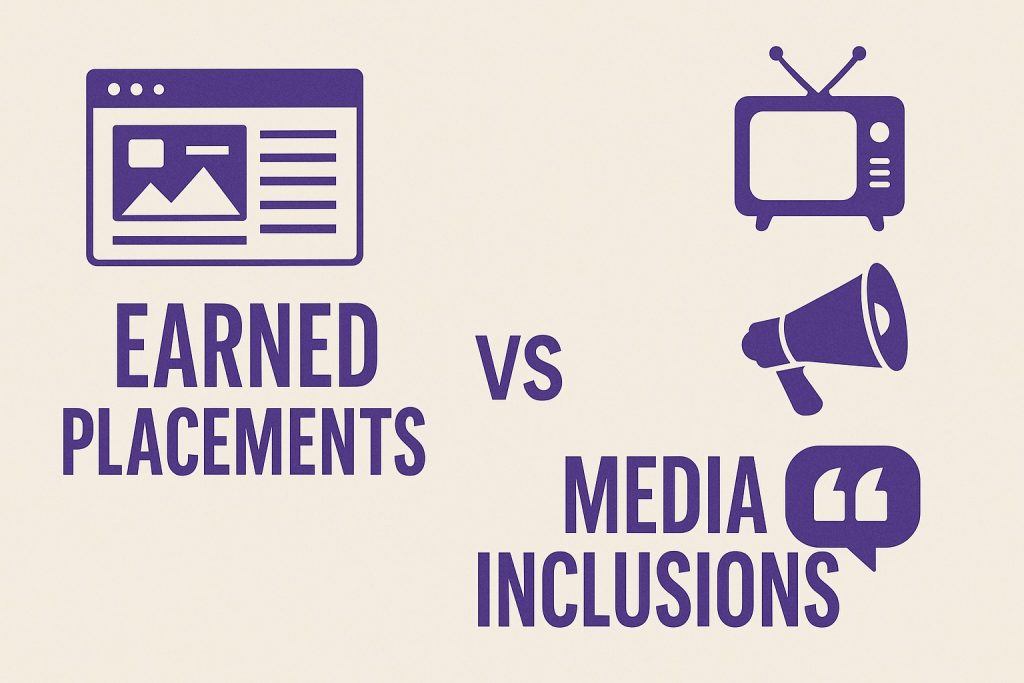With all the hype surrounding AI, I’ve been thinking a lot about Bospar’s clients in the life sciences space and how they are advancing several critical developments in the sector.
While much of the talk around technology is around future impact, these developments are making a difference right now.
A few examples:
- An early-stage drug discovery workflow AI generates first-in-class lead compounds within seven months – not years.
- A real-world evidence platform combines deep phenotyping — structured and unstructured data from electronic health records (EHRs), AI and accuracy determination — to help determine regulatory, market access and medical affairs decision-making.
- AI-powered technology wrangles – and then centralizes — data sets to help identify areas of improvement for patient care and elevate the patient experience.
- Digital tools give providers real-time access to patient information via in-workflow resources accessed through EHRs or deliver appropriate and available prescription treatments that match the patient’s insurance requirements.
We are fortunate to work with clients that are committed to developing technology that has a genuine positive impact on patients’ outcomes. Our role is to make sure the healthcare industry and the world at large know and understand that impact. More about that later.
Here’s more about what some of the leading innovators in this space are doing and expecting.
Rare diseases may be first to see results from AI-powered drug development research
Hanjo Kim, senior vice president of global strategy and head of medicinal chemistry at Standigm, the AI drug discovery company, offers his analysis of the AI big picture for disease research in 2024:
“The advances in science, especially biology, result in more diseases [being identified], as the definition of disease will change a lot. Though it is clear that oncology is the most relevant disease for AI technology applications, the overall trend for AI research in drug development will be towards obesity and longevity.
“The first AI-designed drug will most likely not reach the market in 2024. Because several AI-designed molecules are in Clinical Phase 2, getting the approvals might take a few more years. Still, I don’t exclude the possibility of rapid approvals for rare diseases within the year.
“The number of collaborations between big techs and pharma companies will grow, and some will be disruptive. Generative AI models will dominate most industry areas. Though scientists are not using them because of the ‘hallucination’ issue, they will find ways to reduce the adverse effects while keeping their merits. I anticipate that some case studies will show that generative AI models can be used for biological applications, including novel mechanisms of diseases. Large language models will evolve to become more specific and purpose-built for each industry.“
Healthcare requires purpose-built AI solutions to generate value for health systems
There is no one-size-fits-all AI solution for healthcare, whether the technology is used for streamlining data for operational efficiencies or disease management. Matt Hollingsworth, co-founder of Carta Healthcare, says that in 2024, health leaders should avoid generalized AI platforms with nebulous value and instead look for ones that take a more nuanced approach.
“Given the excessive hype around AI at the moment, health leaders should cut through the hype by selecting solutions that provide value-based/risk-bearing engagements as opposed to SaaS contracts; that will prevent health providers from bearing the risk of the technical execution,” said Dover. “At this point, AI has reached a degree of maturity that should no longer require providers to take a bet on a technology with a multi-million dollar SaaS contract. Technology companies should put their money where their marketing is. A successful, tailored solution requires consultation with experts familiar with the intricacies of healthcare data to employ techniques such as brute force mapping to create a stable system while adjusting the approach periodically to keep up with changes in technology and management.”
The business landscape is cloudy – impacting R&D, but there are silver linings
Carl Foster, chief business officer at Standigm, shared this perspective on why R&D in 2024 will be challenging for the biotech industry, especially regarding early research and development (R&D), a key indicator for the sector: “A rocky economy and turbulent stock market have caused IPOs to dwindle and VC firms to hoard cash instead of investing in new companies,” Foster said. “As a result, many pharma companies are looking for down-and-dirty merger and acquisition deals. There will likely be an increase in deals and acquisitions in the late-stage technology arena as these are more appealing to companies worried about revenue than new early-stage projects.
“Exploring early R&D in this rapidly changing environment for many enterprises, regardless of size, will become more challenging. As global uncertainty continues, big pharma will continue to feel the pressures of the Inflation Reduction Act, which can cause companies to defer drug releases to avoid grappling with government price negotiations. However, there are many technological silver linings. CRISPR, gene editing and cutting-edge therapies like CAR-T are likely to play an important role in healthcare, and we can continue to anticipate breakthrough drugs that promise to reshape the landscape and potentially provide significant, effective and safe treatment and healthcare options.”
AI can mitigate some of the challenges healthcare faces due to ongoing labor shortages
With projections estimating a shortfall of up to a million nurses, AI presents a viable solution to augment existing human power while enhancing workflow efficiency.
Hollingsworth sees AI as a solution: “Although the adoption of AI in healthcare is nothing new, there will continue to be a growing need for AI technology in 2024 and beyond. With an overall lack of human power in healthcare, as seen in nursing and staff shortage trends, AI looks like the best solution for retaining existing staff at competitive compensation rates while increasing efficiency in workflow and improving clinician job satisfaction.
“According to the National Library of Medicine, the key to successful AI implementation is to do it in a clinically relevant way that clinical caregivers can get behind. It’s not only about the technology; it’s about how technology and caregivers work together in a trusted way to believe in, train and commit their AI solutions to provide long-term value.”

Use PR to generate greater understanding of AI’s value
PR also has a role to play in securing successful AI implementation by acting as a conduit to ensure these revolutionary, life-saving technologies receive the attention they deserve.
Bospar has a track record of success in helping healthcare innovators share their stories.
For example, we have empowered the following companies to bring their stories of innovation to relevant media – and the world:
- Standigm: This company’s workflow system – rooted in AI – can identify first-in-class lead compounds within an average of seven months – six times faster than traditional approaches. Standigm called on Bospar to build and execute a PR campaign to drive media coverage and help secure partnerships and customers with big pharmaceutical companies. Bospar understood that the PR campaign needed to tie the Standigm story to the day’s news and explain it so that even non-biotech reporters could understand. So, Bospar tapped into the hot trend of the moment: generative AI and ChatGPT, generating media coverage in prestigious outlets like Nature, Head Topics, Becker’s Hospital Review and Forbes, amassing a total UVM of over 612 million. The client’s innovative AI solution earned recognition as a transformative force in drug discovery, leading to partnerships with multiple pharmaceutical companies and research institutions worldwide.
- Carta Healthcare: This business revolutionizes clinical data abstraction through AI-driven solutions. Bospar’s comprehensive PR initiatives positioned its solution as vital to mitigating the healthcare system’s inefficiencies. Through targeted media placements across major outlets, consumer platforms and healthcare verticals, Bospar secured 105 placements, amplifying the client’s reach and solidifying its position as an industry leader.
That was just round one. Leveraging our expertise in strategic communications, we reshaped the narrative surrounding generative AI from a threat to a transformative tool. The resounding success of this initiative is reflected in the extensive media coverage, boasting a total UMV of 1.66 billion and a threefold increase in revenue while expanding its clientele within the healthcare ecosystem by 50%. Its portfolio spans 18 health systems, and its technology solutions are deployed in 245 hospitals.
- Together by Renee: This company offers the first app ever to use generative AI to measure vitals – including blood pressure, heart rate, heart rate variability, respiratory rate and blood oxygen – simply by having users smile for a selfie captured by their smartphone. It can also complete and manage cumbersome healthcare tasks for users, like refilling prescriptions and scheduling appointments. Additionally, it can detect depression and anxiety symptoms just by the sound of a user’s voice.
Bospar’s PR strategy leveraged the app’s innovative use of generative AI to revolutionize healthcare. We emphasized how the app catered to aging adults, individuals with chronic diseases and overwhelmed caregivers, positioning it as a solution to prevalent healthcare challenges in the U.S. The strategy successfully linked the app’s unique features to broader healthcare issues, garnering substantial attention and adoption. Media outreach efforts resulted in 230 placements, including 200 broadcast placements and a UMV of over 700 million, driving a 3,000% increase in downloads within one week and nearly 11,000 downloads from secured local news coverage.
At Bospar, we recognize the seismic shifts that the healthcare, pharma and medtech sectors are experiencing, propelled by the advancements in AI, machine learning and digital technologies. These innovations are not just buzzwords; they drive tangible improvements in biomedical research, diagnostics, treatment planning and patient engagement.
The healthcare industry faces complex challenges – the aging population, provider burnout and accessibility to care – to name just a few. But there are also incredible technological advancements and innovative drug therapies that can improve efficiency and enhance the quality of care to provide better patient outcomes and counter provider burnout.
Let’s get the word out.




